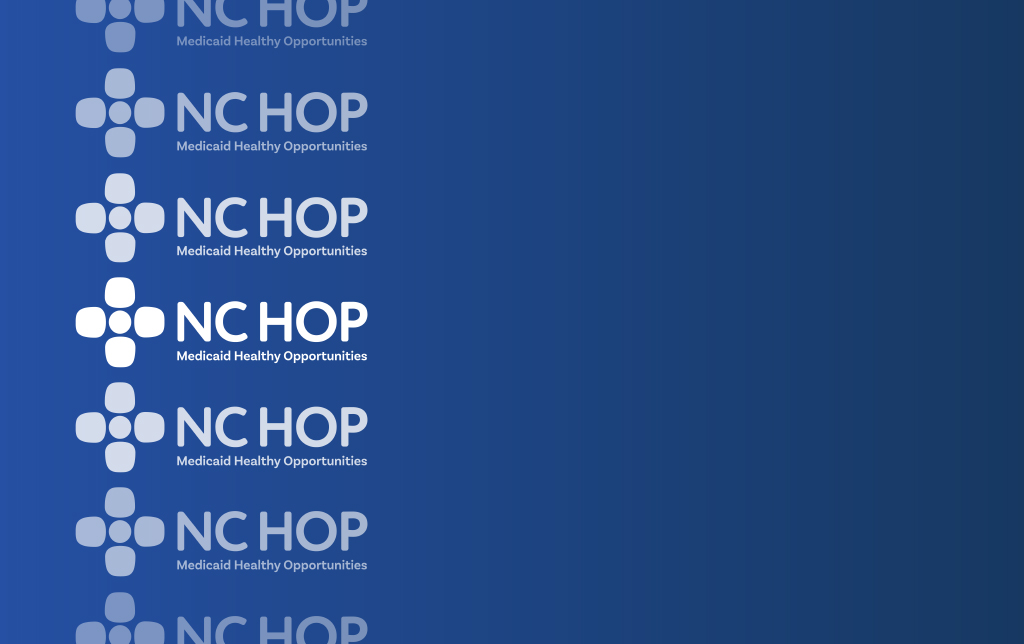Do you need health insurance? North Carolina provides healthcare coverage to adults and children through NC Medicaid — including those who didn’t qualify before Medicaid expansion and adults without children. Find out if you qualify today.
If you don’t have NC Medicaid or a health condition that qualifies you for HOP, you may be eligible for other community-based services. We encourage you to explore the resources below and to reach out to trusted local service providers.
NC 211
Browse United Way of North Carolina’s database or call 2-1-1 or 1-888-892-1162 to receive free and confidential information on health and human services within your community.
NCCARE360
Online database of community resources searchable by city or zip code. Complete an assistance request form to get assistance with referrals for services.
MANNA Partner Network
Access support from local food pantries, meal programs, mobile markets, and food distribution sites using MANNA’s food finder map or by calling 800-820-1109 or texting 828-367-9456.
Local Health Department
Contact your local health department for resources that promote healthy living, prevent disease, and eliminate environmental dangers.
NC Medicaid
Learn more about Medicaid eligibility and how to apply. NC Medicaid pays for doctor visits, yearly check-ups, emergency care, dental care, mental health, and more – at little or no cost to eligible participants.
NC Housing Search
Access resources to support affordable rentals and homeownership. Search for rentals by city, county, or zip code.
North Carolina Coalition Against Domestic Violence
Searchable list and map of organizations that help North Carolinians move toward safety, including 24-hour confidential crisis hotlines, emergency shelters, support groups, and counseling.
American Public Transportation Association
Directory of public transportation services in North Carolina listed by county.
